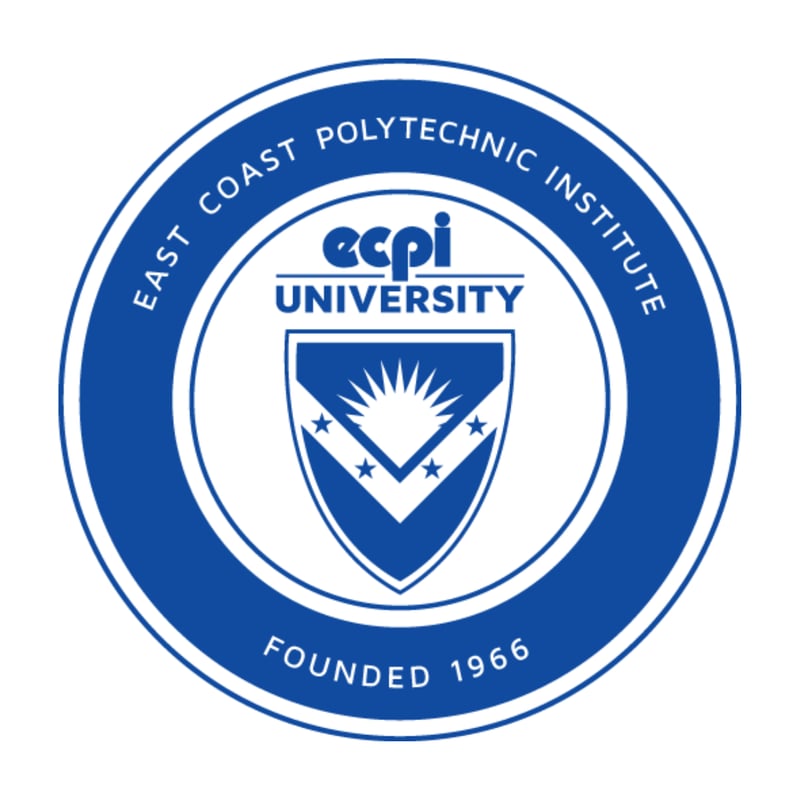
Financial aid (may be available)

No cost info

Financial aid (may be available)

Financial aid (may be available)

Financial aid (may be available)

Financial aid (may be available)

Financial aid (may be available)

Financial aid (may be available)

No cost info

Financial aid (may be available)

Financial aid (may be available)

No cost info

Financial aid (may be available)
Learn about the components of supply chains including supply chain networks, supply chain facilities, transportation, and inventory management as well as how emerging technologies affect them with our Supply Chain Fundamentals Certificate. These courses are perfect for learners seeking to enter the supply chain profession, as well as those who are seeking to enter supervisory roles or enter a new domain within the supply chain.
No cost info
This certificate program provides a foundation in supply chain and logistics management from both a U.S. as well as global perspective, preparing participants for professional careers with manufacturers and distributors, transportation carriers, and logistics service providers.
No cost info
American Military University (AMU) offers a logistics management certificate at the graduate level. It provides in-depth study of logistics and supply chain management with consideration of global impacts.
AMU’s online logistics certificate emphasizes transportation factors related to logistics, especially the maritime industry. The curriculum covers topics such as:
Transportation policy and planning
Transportation management and economics
Port and terminal operations
This program is an appropriate choice for those who wish to increase their knowledge of logistics and supply chain management without committing to a full degree program.
No cost info
No cost info
The online Logistics and Supply Chain Management Certificate from CCU will help you gain a deeper understanding of the processes and fundamentals within supply chain and inventory management, including purchasing and inbound logistics; material handling in distribution centers; warehousing and warehouse management; financial and inventory controls; transportation and distribution; and reverse and global logistics.
No cost info

Financial aid (may be available)

Financial aid (may be available)

$2,730 total

No cost info
No cost info
Are you interested in pursuing a career in logistics? If you're located in Colorado Springs, you're in luck! There are several logistics classes available near you that can help you gain the necessary skills and knowledge to succeed in this field. In this blog post, we will explore what logistics is, the training requirements for this career, what to look for in a logistics class, what to expect from the day-to-day class, the certification process, how to find related jobs, and other classes you can take after becoming a logistics professional. So let's dive in!

Logistics is a crucial aspect of any business that involves the coordination and management of the flow of goods and services from the point of origin to the point of consumption. It encompasses various activities such as transportation, warehousing, inventory management, and supply chain management. A career in logistics can be challenging but also rewarding, offering opportunities for growth and advancement.
Logistics involves the planning, implementation, and control of efficient and effective flow and storage of goods, services, and related information from point of origin to point of consumption. It plays a vital role in supply chain management and involves activities such as transportation, inventory management, warehousing, and customer service.
To pursue a career in logistics, it is essential to have the necessary training and skills. While a college degree is not always required, having some formal education or training in logistics can give you a competitive edge. Many vocational training programs and community colleges offer logistics classes that can provide you with the knowledge and skills needed for this field. These programs typically cover topics such as transportation management, supply chain management, inventory control, and logistics technology.
When searching for a logistics class near you, there are a few key factors to consider to ensure you find the right one for your needs:
Accreditation: Look for a class that is accredited by a reputable organization or institution. This ensures that the program meets certain quality standards and that the training you receive will be recognized by employers.
Curriculum: Review the curriculum of the class to ensure it covers all the essential topics and skills needed for a career in logistics. Look for classes that offer hands-on training and real-world scenarios to enhance your learning experience.
Instructor Qualifications: Research the qualifications and experience of the instructors who will be teaching the class. It's important to learn from industry professionals who have practical knowledge and experience in logistics.
Facilities and Resources: Check out the facilities and resources available to students. A well-equipped training center with access to logistics software and tools can enhance your learning experience and better prepare you for the job market.
A logistics class will typically involve a combination of classroom lectures, hands-on training, and practical exercises. Here's what you can expect from the day-to-day activities in a logistics class:
Classroom Lectures: You will attend lectures where instructors cover various topics related to logistics, such as transportation management, supply chain optimization, inventory control, and logistics technology.
Hands-on Training: Many logistics classes offer hands-on training opportunities where you can practice using logistics software, learn how to manage inventory, and gain practical experience in handling logistics operations.
Group Projects: Collaborative group projects are often a part of logistics classes, allowing you to work with your peers to solve real-world logistics challenges and develop problem-solving and teamwork skills.
Guest Speakers: Some logistics classes may invite guest speakers from the industry to share their insights and experiences, providing you with valuable industry knowledge and networking opportunities.
After completing a logistics class, you may have the opportunity to obtain a certification in logistics. While certification is not always required, it can demonstrate your commitment to the field and enhance your job prospects. The certification process typically involves the following steps:
Eligibility: Determine if you meet the eligibility requirements for the certification. These requirements may include completing a certain number of training hours or having a minimum level of work experience in logistics.
Exam: Prepare for and pass the certification exam. The exam will test your knowledge and skills in various areas of logistics, such as transportation management, supply chain optimization, and inventory control.
Certification Maintenance: Some certifications require ongoing maintenance, such as completing continuing education courses or renewing the certification periodically. Be sure to understand the maintenance requirements before pursuing a certification.
Once you have completed your logistics training and obtained any necessary certifications, you'll be ready to start your career in the field. Here are some tips to help you find related jobs:
Networking: Build a professional network by attending industry events, joining logistics associations, and connecting with professionals on platforms like LinkedIn. Networking can help you uncover hidden job opportunities and receive valuable advice from industry experts.
Job Boards: Utilize online job boards and platforms to search for logistics job openings in your area. Websites like Indeed, Monster, and LinkedIn can be excellent resources for finding job opportunities.
Company Websites: Visit the websites of logistics companies in your area to explore their career pages and job openings. Many companies post job listings directly on their websites, providing you with a direct line of communication with potential employers.
Staffing Agencies: Consider reaching out to staffing agencies that specialize in logistics and supply chain management. These agencies can help match you with job opportunities that align with your skills and qualifications.
Once you have established yourself in the field of logistics, there are other classes you can consider taking to further enhance your skills and expand your career opportunities. Some additional classes that may be beneficial include:
Lean Six Sigma: This class focuses on process improvement methodologies and tools that can help streamline operations and reduce waste in logistics.
Project Management: Project management skills are highly valued in the logistics industry. Taking a project management class can help you develop the skills needed to successfully plan, execute, and manage logistics projects.
Supply Chain Management: Understanding the broader supply chain and how logistics fits into it can be valuable for career growth. Consider taking a supply chain management class to gain a comprehensive understanding of the field.
If you're interested in pursuing a career in logistics in Colorado Springs, there are several classes available to help you gain the necessary skills and knowledge. By selecting the right logistics class, obtaining any necessary certifications, and actively searching for job opportunities, you can kickstart your career in this exciting field. Remember to visit Dreambound for more information on logistics classes and other vocational training options. Dreambound is the largest platform for students to find vocational training programs and can provide you with all the information you need to find the perfect class. Good luck on your journey towards a successful career in logistics!
If you're considering pursuing this certification in a different location, we have other in-depth guides to help. Check out our guides for different cities below:
Are you exploring diverse professional opportunities? Take a closer look at these resources that Dreambound has written to help in your search.
Dreambound's platform allows prospective students to find the right educational program for them through searching, filtering, and connecting with our extensive selection of career & technical education partners.
Dreambound has over 70 programs across healthcare, technology, business, and industrial trades. This includes programs such as Medical Billing, Cybersecurity, and welding.
Some of our schools offer financial aid for those who qualify. Many others offer payment plans, where you can pay the cost of class over time.
Yes, Dreambound offers many online programs. On Dreambound's search, you can filter by online, in-person, and hybrid (part online, part in-person).
Dreambound is completely free for you to use! We are supported by schools and organizations who pay to advertise on our website, so we can offer all of our career resources for free.